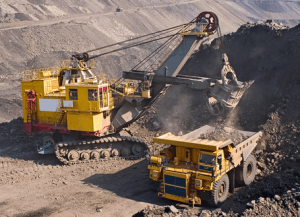CSOs call on government to internalise ECOWAS directive on mining
 Civil society organisations (CSOs) and regulatory bodies have called on government to internalise the provisions of the ECOWAS directive on mining, in Ghana.
Civil society organisations (CSOs) and regulatory bodies have called on government to internalise the provisions of the ECOWAS directive on mining, in Ghana.
The CSOs and the regulatory bodies, drawn from the Northern, Upper East and Upper West Regions made the call at a stakeholders’ forum organised in Tamale.
They said the some of the provisions of the ECOWAS directives such as the “Free Prior and Informed Consent principle” and “The Polluter Pays Principle” would compel mining companies to respect community rights and to improve the management of natural resources if government internalises the directives and implements them.
The forum was organised by WACAM, a human rights and environmental mining advocacy NGO, in collaboration with the Centre for Public Interest Law (CEPIL) and Centre for Environmental Impact Analysis with support from IBIS Ghana, Care Ghana and Ford Foundation.
It was aimed at seeking stakeholders’ views and inputs to develop a sample mining bill to influence legal reforms in the mining sector in Ghana so as to reflect the guiding principles and policies of the ECOWAS directives on mining which Ghana is a signatory to.
The stakeholders said the mining law does not only favour the mining companies, but also leads to the destruction of the livelihoods of mining communities as well as violations of human rights.
The participants said they were not happy about the overexploitation of the mining sectors by mining companies’ particularly multinationals.
They however expressed optimism that if the government internalises the ECOWAS directives and ensure strict implementation, it would help address the numerous constraints in the sector and rake in more revenue for accelerated development.
Giving an overview of violations in natural resource extraction in Ghana, Mrs Hannah Owusu Koranteng, Associate Executive Director of WACAM, expressed the need for responsible mining and voiced out her regret that Ghana being the second largest gold producer in Africa could still talk of being poor.
“I get so sad when people talk about Ghana being a poor country. The Legal framework is not good enough.
“Implementation has been a problem. Regulators have not been on top of issues. The Mineral and Mining Act, Act 703, 2006 protects mining investment interest as against sovereign interest.”
She said the discussions on mining had often been focused on revenue to the neglect of environmental pollution, human rights abuses and potential loss of livelihoods associated with mineral exploitation.
Mrs Owusu Koranteng cited a number of cases where many people in mining communities had been brutalised and their sources of livelihood such as drinking water sources, polluted.
The Executive Director expressed worry about tax exemptions and task holidays granted to multinational mining companies, which could have gone into the development of the country.
Presenting the draft of the content of the Sample Mining Bill, a Legal Practitioner of the Centre for Public Interest Law, Mr Augustine Niber, stated that there are a lot of loopholes in the current Mineral and Mining Act 2006 (Act 703) which is tilted in favour of the multinational companies for more exploitation and called for strong legal reforms to address the gap.
“Many mining communities are limited in participating effectively in the decision of natural resource exploitation and when they protest, brutalities are out meted to them by security agencies.
“These conflicts have resulted because of the huge gaps in the mining law”, he said.
Source: GNA
